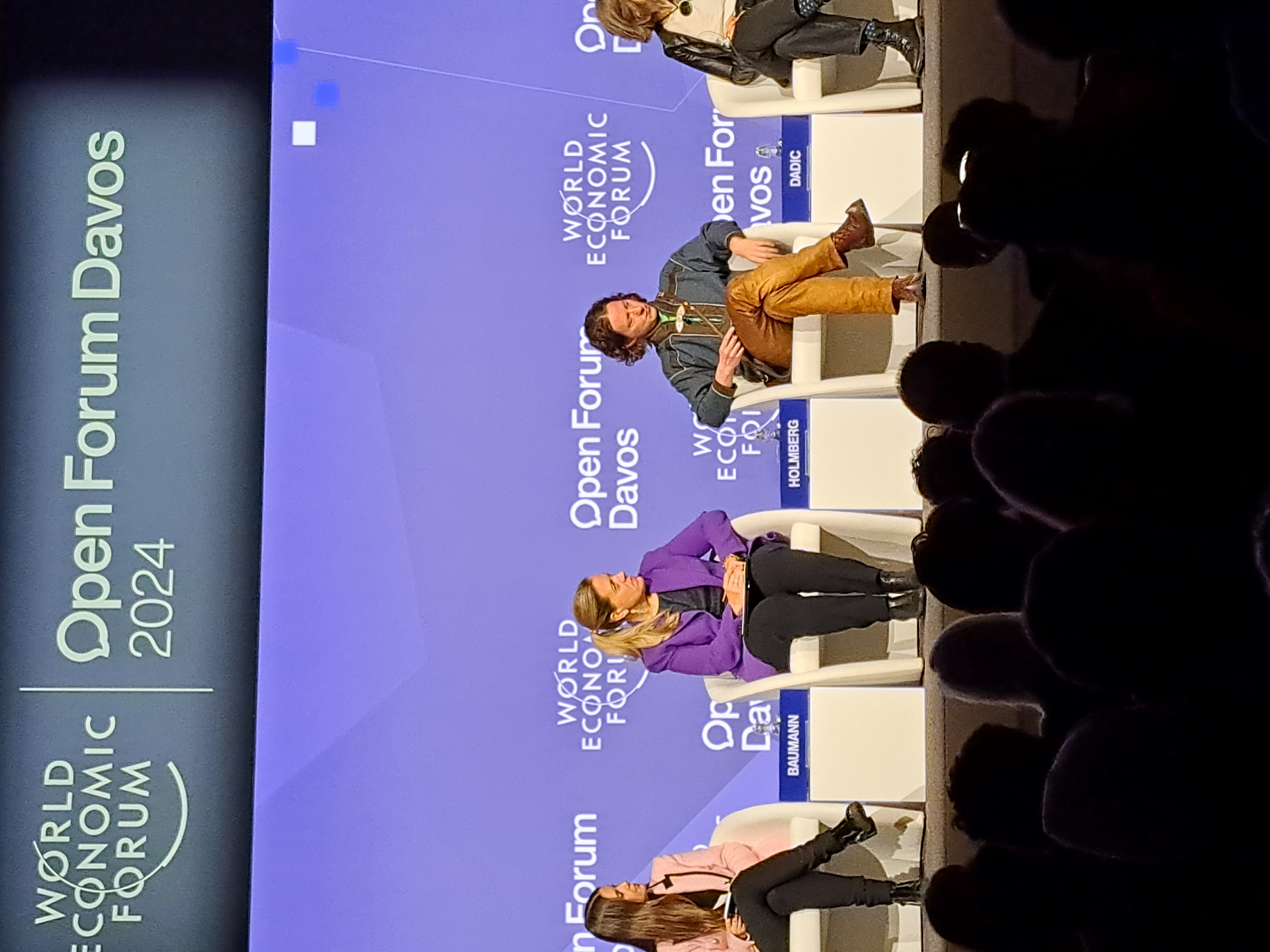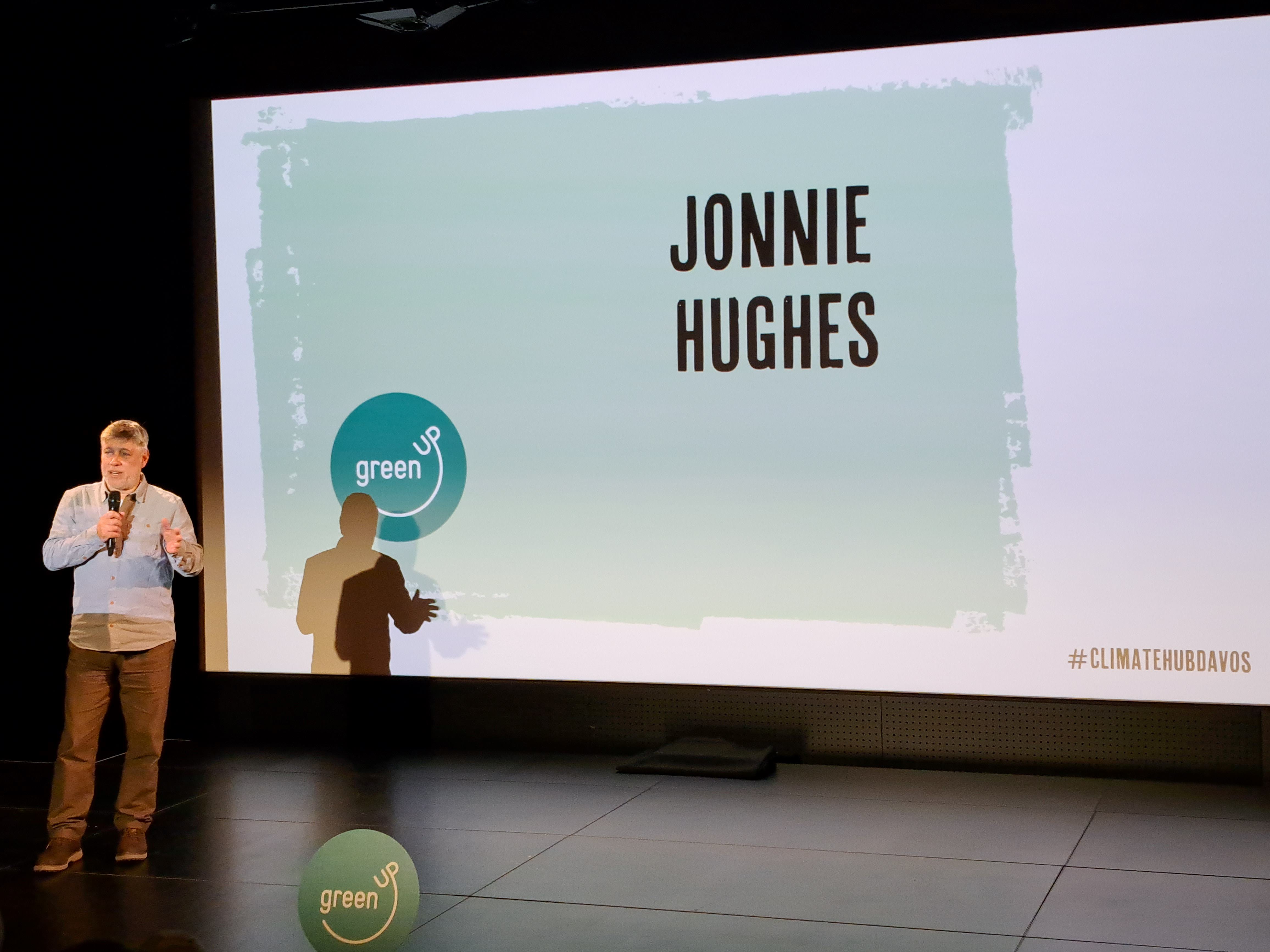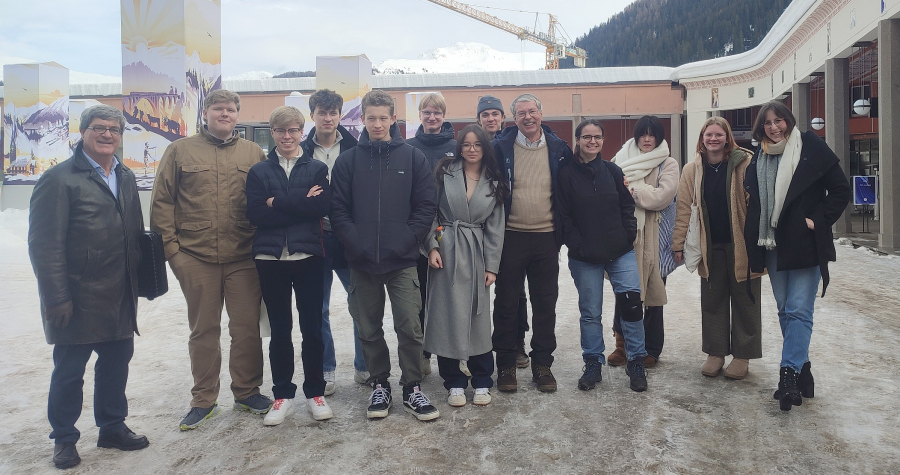Die Schülerinnen und Schüler der 5G und 6G hatten letzte Woche Glück. Sie durften nämlich nach Davos zum WEF fahren und nahmen an einer Panel-Diskussion am Open Forum teil. Hier sind zwei Erfahrungsberichte unserer Schülerinnen und Schüler.
VON REBEKKA MARTI, SCHÜLERIN 5G
Wir waren am Donnerstag, 18. Januar 2024, beim Open Forum des WEF und haben dort 5 Leuten zugehört, wie sie über den Klimawandel und seine Folgen diskutiert und geredet haben. Zuerst hat sich jede Person vorgestellt, und wie sie vom Klimawandel erfahren oder wie ihr Leben vom Klimawandel beeinflusst wird. Danach haben wir eine Episode von der Dokumentation/Serie «Life on our Planet» angeschaut, der die Zeit von der letzten Eiszeit bis heute beschreibt. Ich denke dieser Tag hat uns einiges gelehrt, vor allem das der Klimawandel auch Einflüsse auf die Wirtschaft hat. Einerseits Gute, wie zum Beispiel neue Handelswege durch das arktische Eis, aber andererseits auch schlimme, sowie extreme Wetterverhältnisse, wie Überschwemmungen, Schneestürme etc., die immer öfters auftreten werden, und die die Produktion von Waren sehr beeinflussen könnten. Ich habe viel Neues gelernt, und am meisten schockiert hat mich, dass Windparks auf dem Boden von indigenen Stämmen gebaut werden, ohne ihr Einverständnis zu haben.


Von Cristina Annamaria Bazzell Schülerin 5G
The World Economic Forum's lecture on environmental challenges due to climate change emphasized the gravity of the situation, particularly in the polar regions. It highlighted the existence of 16 global climate tipping points, of which five are at risk of being triggered by a 2°C temperature increase. This includes the alarming rate of Arctic warming, four times faster than the global average, leading to potential ice-free Arctic summers and significant global weather impacts.
Dr. Stroeve discussed observable changes in the Arctic using satellite data, predicting an ice-free Arctic Ocean in summer and its wide-reaching implications. The rapid Arctic warming and some Antarctic tipping points could cause a sea-level rise 20% higher than expected and alter global weather patterns, causing more droughts and heavy rainfall.
Dadić highlighted the rapid loss of glaciers, especially in the last two years, equating to a 10% loss, which is as much as the previous 30 years combined. This melting, exacerbated by strong summers and a lack of new snow, threatens economies reliant on ski tourism. Moreover, the diminishing snow and ice, which reflect solar radiation, intensify global warming, posing a heightened risk to human health.
Holmberg discussed the challenges faced by indigenous Arctic communities, including adaptation to environmental changes and impacts on wildlife and traditional practices. The Sami people, for example, struggle with drastic temperature increases and changes in animal behaviours, impacting their way of life. He emphasized the need for considering social and cultural sustainability alongside environmental efforts, cautioning against 'green colonization' as seen in the negative impacts of green energy projects like wind turbines on indigenous lands.
Professor Bauman connected these changes to broader global effects, emphasizing Switzerland's involvement in scientific research and international cooperation through the Arctic Council. He noted that Arctic changes have global repercussions, such as the opening of new trade routes, and stressed Switzerland's role in addressing these issues through international cooperation.
Koch Alvarenga brought attention to the Amazon Forest, linking climate change to increasing inequality in Latin America. He highlighted the global youth movement in climate activism, stressing the importance of including youth, especially those from affected regions, in decision-making processes.
The Q&A session underscored the need for strong leadership and carbon pricing, along with the involvement of indigenous knowledge and youth in finding solutions. It emphasized the importance of promoting green energy, ocean fertilization to address salmon population decline, and bringing climate change back onto the global agenda.
The lecture concluded on an optimistic note, recognizing advances in green technology, changing public perceptions, and successful green energy implementations. It highlighted Portugal's success in running on green energy and the importance of international cooperation and a holistic approach to sustainability, suggesting that even small actions can contribute significantly to combating climate change.

